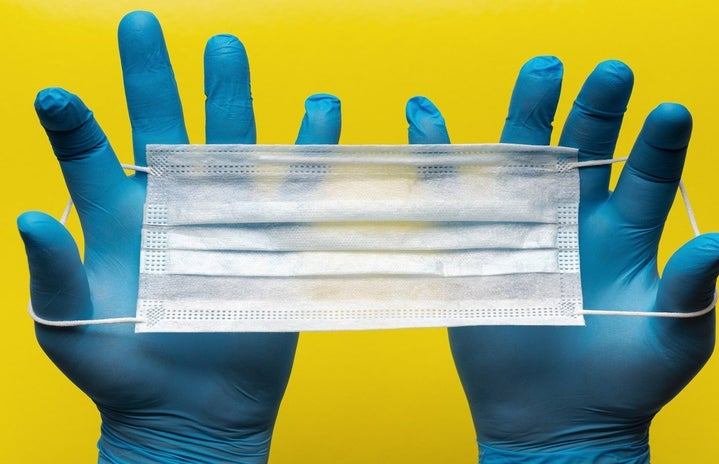One of the realities of the COVID-19 era is feeling anxious. People who have never experienced anxiety before may be experiencing those feelings for the first time and for those who are familiar with it, more extreme versions may begin to develop. This makes perfect sense––none of us have ever lived through a pandemic before and the uncertainties and fear hit home for a lot of us. However, even knowing this, I’ve been having a hard time wrapping my head around the fact that I’m feeling levels of anxiety unlike anything I have ever felt before. It can be difficult not to beat myself up over it, knowing that there are others who have been hit way worse by COVID. My family and I are safe and, yet, I regularly feel like I cannot focus on anything else.
When I think about it a little bit more, however, I realize that this makes total sense. Having experienced anxiety for most of my life, I thought I had it mostly figured out. But nothing could have prepared me for the daily fear and stress I felt this spring and even now, months later. After spending some time reflecting on what exactly was causing it, I came to realize that health and health scares are a huge trigger for me. I am definitely a hypochondriac, even in the best of times, and have always been prone to getting sick, especially with respiratory illnesses. Furthermore, my anxiety manifests itself in a very specific way: tightness in the chest and shortness of breath. Convenient, right? Knowing this, I have begun to understand why COVID-19 is the perfect storm for my anxiety to reach levels it never had before.

My mom began to develop COVID-19 symptoms in late March, and also sustained a head injury around the same time. I was the only person around to help her take care of her injury, so I had no choice but to be near her and touching her while she was starting to get sick, even though we both knew immediately that it was COVID-19. She had a cough, extreme fatigue, and loss of taste and smell. This was at a time when COVID tests were difficult to get, so the next few weeks were just a waiting game for me. I took my temperature twice daily and was constantly assessing myself for symptoms. I didn’t end up getting sick, but what I did get was intense stress and an anxiety-induced sore throat and headache that lasted for weeks. I was still extremely worried about my mom, whose age puts her at a higher risk of complications. Living in New York City, I also decided to stay inside for over a month until I could be sure I was not contagious, which just contributed to my feelings of anxiety and isolation. I pulled away from friends, since talking to anyone required a lot of effort and was very draining. I barely slept and only moved from my bed during the day to get food.

The lasting effects of this have not gone away. I recently heard of the changes a person goes through after an experience with COVID-19 in their household described as trauma, and while I recognize that my experience was by no means extreme in comparison to others’ experiences, I definitely identify with this idea. I am not back to normal. I haven’t forgotten the fear I felt over my mother’s safety, nor my own. I still have days where the anxiety I feel is all I can focus on. I still don’t function at full capacity. And that’s okay.
What I’ve learned from this experience is that in general, I need to remember to be kinder to myself and take the time to prioritize my mental health. The pandemic is not over. It’s okay that I’m not currently functioning at a level I’m proud of. It’s okay to need space from friends and family to focus on myself. And above all, it’s okay to be honest with the people around me when I’m not doing okay and to seek resources when I need them.



